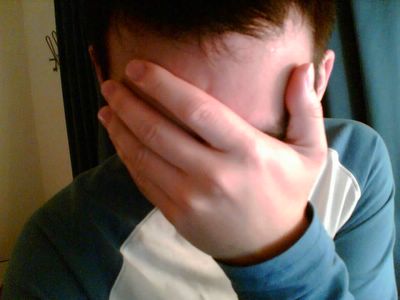Crawling out of the wreckage
The wreckage of the Indian Ocean rim is presently all over the news - in another week or so, it will simply be, to us, all over. Such is the longevity of our attention, and the market-mindedness of the media.
As my christmas passed with modest cheer, and little event, I have spent a while contesting the situation in my mind. After the donation to an aid agency has been placed, and as the news is digested, it has been intriguing how we in the safety of the western hemisphere have responded. Have you ever noticed how our media coverage reflects our measurement of the disaster's scale in terms of death toll? It is our guiding integer, the which we place against a scale of zeros (hundreds, thousands, tens of thousands) to determine impact. It's curiously, but so particularly, our style to be capitalistic and utilitarian in our quantification of even such a disaster. In a bizarre sense, we look to volume as the term of value - and it makes things faceless. Perhaps, in some way, it is our means of distancing ourselves emotionally - bigger scales mean it is impractical to engage with any single loss. I doubt if, for the victims, volume has anything as much to do with the pain. I cannot imagine feeling the colossal scale of the disaster, of thinking of others, where the lethal abduction of deep personal loves occurs, and where children, spouses, and parents are involved.
How do we react in the prosperous, safe West? I struggle sometimes even to be just thankful for what I have - the comfort of our relative safety makes me uneasy. That this has happened at a time when we indulge in our novelty and luxury, makes this doubly disturbing. I am not trying to beat up the prosperous people of the Western nations - I recognise that beyond giving money and supporting aid efforts, there is little that can be done. I think that deep down, in most of us, there is a very human, silent trauma occurring, where we bury our seeming powerlessness and internalise it. I ask myself - under what circumstances could we envisage ourselves howling in anguish at the visions of disaster that we have ready access to in our media? Why did thousands line the streets and wail for princess Diana, yet release but a mere sigh at the catastrophe beyond our immediate view?
It is not something we do readily - grieve for others. I think we are in this sense deficient. We are so far away from a true sense of global citizenship - a feeling of community, with all its emotional bonds and protections, across the topographical divides.
As I read and am wrung by the terror of our wealth, it seems to me that the importance of global citizenship, as a philosophical tenor as well as a practice in consumption, waste and charity, has never been more stark.
As my christmas passed with modest cheer, and little event, I have spent a while contesting the situation in my mind. After the donation to an aid agency has been placed, and as the news is digested, it has been intriguing how we in the safety of the western hemisphere have responded. Have you ever noticed how our media coverage reflects our measurement of the disaster's scale in terms of death toll? It is our guiding integer, the which we place against a scale of zeros (hundreds, thousands, tens of thousands) to determine impact. It's curiously, but so particularly, our style to be capitalistic and utilitarian in our quantification of even such a disaster. In a bizarre sense, we look to volume as the term of value - and it makes things faceless. Perhaps, in some way, it is our means of distancing ourselves emotionally - bigger scales mean it is impractical to engage with any single loss. I doubt if, for the victims, volume has anything as much to do with the pain. I cannot imagine feeling the colossal scale of the disaster, of thinking of others, where the lethal abduction of deep personal loves occurs, and where children, spouses, and parents are involved.
How do we react in the prosperous, safe West? I struggle sometimes even to be just thankful for what I have - the comfort of our relative safety makes me uneasy. That this has happened at a time when we indulge in our novelty and luxury, makes this doubly disturbing. I am not trying to beat up the prosperous people of the Western nations - I recognise that beyond giving money and supporting aid efforts, there is little that can be done. I think that deep down, in most of us, there is a very human, silent trauma occurring, where we bury our seeming powerlessness and internalise it. I ask myself - under what circumstances could we envisage ourselves howling in anguish at the visions of disaster that we have ready access to in our media? Why did thousands line the streets and wail for princess Diana, yet release but a mere sigh at the catastrophe beyond our immediate view?
It is not something we do readily - grieve for others. I think we are in this sense deficient. We are so far away from a true sense of global citizenship - a feeling of community, with all its emotional bonds and protections, across the topographical divides.
As I read and am wrung by the terror of our wealth, it seems to me that the importance of global citizenship, as a philosophical tenor as well as a practice in consumption, waste and charity, has never been more stark.




0 Comments:
Post a Comment
<< Home